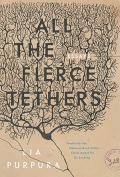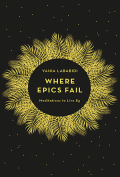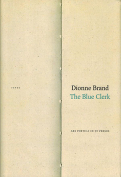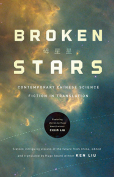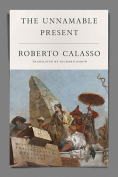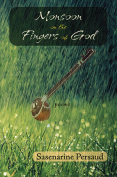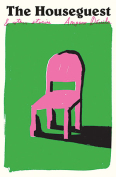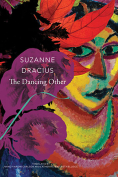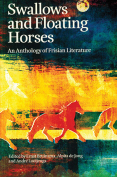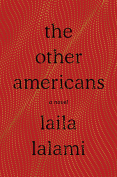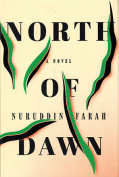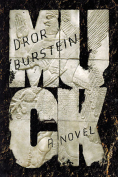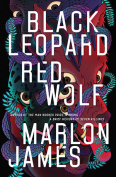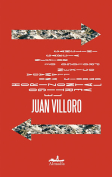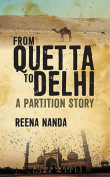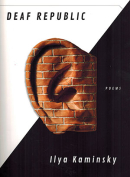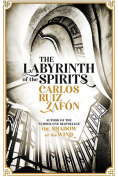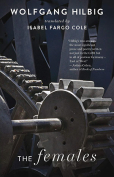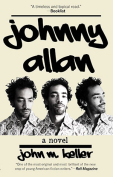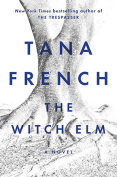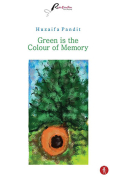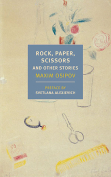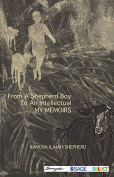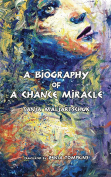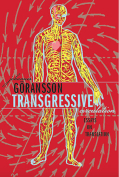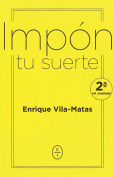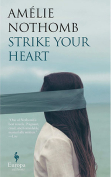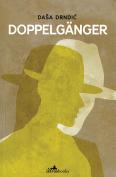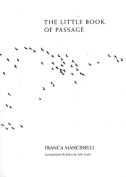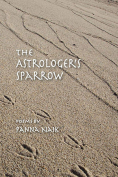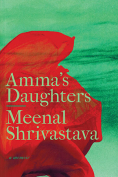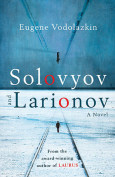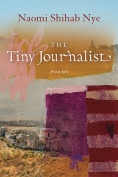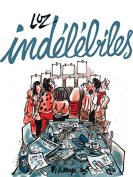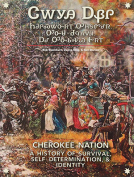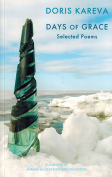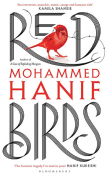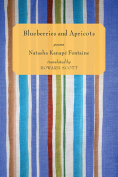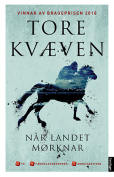Broken Stars: Contemporary Chinese Science Fiction in Translation
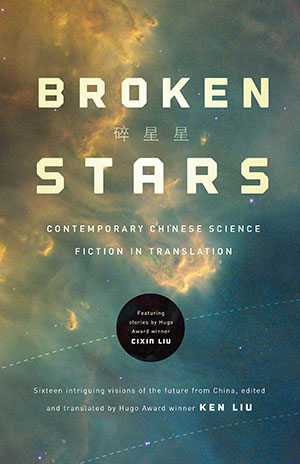 New York. Tor Books. 2019. 480 pages.
New York. Tor Books. 2019. 480 pages.
Broken Stars is author, translator, and editor Ken Liu’s second anthology of contemporary Chinese science fiction in English translation, and it’s been highly anticipated ever since Invisible Planets was published in late 2016. Like its predecessor, Broken Stars features some of the most accomplished Chinese authors writing in the genre today: Xia Jia, Zhang Ran, Tang Fei, Han Song, Cheng Jingbo, Baoshu, Liu Cixin (whose The Three-Body Problem won the 2015 Hugo for Best Novel), Hao Jingfang (whose Folding Beijing won the 2016 Hugo for Best Novelette), Fei Dao, Anna Wu, Ma Boyong, Gu Shi, Regina Kanyu Wang, and Chen Qiufan. Again, like Invisible Planets, Broken Stars includes essays on the growth and development of science fiction in China over the past few decades.
What sets these two anthologies apart, though, is Liu’s decision to include a greater number of authors and fewer stories per author in Broken Stars, specifically so he could “expan[d] the range of voices included as well as the emotional palette and the narrative styles,” as he explains in his introduction. Despite this wider range of voices and styles, Liu emphasizes that this book and its predecessor are not meant to be “representative” of Chinese sf. Rather, both volumes are meant to introduce anglophone readers to the exceptionally varied and creative work coming out of a country whose general readership has only recently and openly embraced the genre.
Clarkesworld Magazine readers will immediately recognize many of the names in Broken Stars since, through its partnership with the Chinese media company Storycom, the US-based publication is able to bring one work of Chinese sf in translation to anglophone readers each month. However, even readers who have encountered some of these stories before will be excited to see them once again, this time shoulder-to-shoulder with newly translated and brilliant stories like Ma Bo-yong’s humorously anachronistic “The First Emperor’s Games” or Cheng Jingbo’s mystical “Under a Dangling Sky.” Rereading already-familiar stories, too, is rewarding (as I can attest from my own second reading of Xia Jia’s graceful and poignant “Goodnight, Melancholy”).
While all these stories can be classified as “science fiction,” they successfully push the boundaries of that category, with some leaning more toward the fantastic and mystical, and others taking the historical or hard sf route. We even learn about subgenres within science fiction that have developed in China, such as chuanyue, which is a species of story that merges time-travel fiction and science fiction (as in Zhang Ran’s “The Snow of Jinyang”).
Robots, time travel, the nature of consciousness, bizarre illnesses: these and many other themes are the foundations for the sixteen stories Liu has chosen for Broken Stars. Both “Goodnight, Melancholy” and Regina Kanyu Wang’s “The Brain Box” explore the future potential of computers to interact with and even capture the consciousness of the humans that use them. The mysteries of the human brain itself inform Tang Fei’s “Broken Stars” and Gu Shi’s “Reflection,” horrifying portraits of insanity and the curse of clairvoyance. Liu Cixin’s “Moonlight,” Han Song’s “Salinger and the Koreans,” Baoshu’s “What Has Passed Shall in Kinder Light Appear,” and Zhang Ran’s “The Snow of Jinyang” all take up questions about the nature of time and our (in)ability to change the past or the future. The lovely and richly imagined “Under a Dangling Sky” and “The Robot Who Liked to Tell Tall Tales” (Fei Dao) brilliantly mix magical realism and science fiction to create a new kind of evocative subgenre.
And then there’s Chen Qiufan’s superbly written and intense story “A History of Future Illnesses,” which chronicles imaginary future ailments caused by excessive use of technology, such as “iPad Syndrome” and “Controlled Personality Shattering.” Like Hao Jingfang’s “Invisible Planets” (and Italo Calvino’s Invisible Cities before it), as well as Vandana Singh’s “Ambiguity Machines,” Qiufan’s story deftly jumps from one disease to another like a doctor writing clinical narratives of patients with whom he’s quite familiar. Qiufan’s bold, elastic narrative style is endlessly engaging.
Without Ken Liu’s translations, let’s remember, us anglophone readers wouldn’t have these stories in the first place. Broken Stars, like Invisible Planets before it, is indeed a praiseworthy accomplishment and a gift for all readers.
Rachel S. Cordasco
Madison, Wisconsin

